Innovation Insights with Dave Kingsbury
/Red Idea Partners’ VP of Strategic Growth defines innovation and gives a few tips to help entrepreneurs and corporate innovators overcome barriers and get the work done.
Prefer to just listen? Stream audio version below.
Interview Transcript
Q: How did you get started in innovation work?
A: I would say the first experience I had in innovation was when I was like eleven, and my brother and I cut a long-board—a surfboard—a long-board in half and we tried to build our own surfboards knowing nothing about surfboard design or hydrodynamics or anything of the sort. And we spent all this time and made these beautiful looking boards and then we tried to surf them, and they basically spun around in circles and were completely useless.
Q: How did you go from building un-surfable surfboards to being VP of Growth Strategy at Red Idea?
A: Very early on I was in the sporting goods industry and for instance Nike was a big client, always launching new products, whether it’s a new basketball shoe or watches or things in other sports. And we ended up doing sort of a lot of the, what I would call now strategy work behind what to launch, how to launch it, what color things should be, what shapes they should be, all that kind of stuff. That was a long time ago, like twenty years. And I think that has sort of led me to here through having a company called Radar Communications and we did essentially deep strategy work for everybody from Intel to Hewlett-Packard and Levi’s. So whether it was designing a digital experience for millennials or whether it was designing a hundred year anniversary jean for Levi’s, those would all be what I would consider innovation work.
Q: What is innovation? What isn’t innovation work?
A: It has to be iterative. If you’re going to just add a new flavor to Kellogg’s or Special K or some brand that’s been around for a thousand years, that’s great. But that’s not innovation. Innovation is launching a new form or a whole new business or a whole new line. It’s something that’s unexpected. And something that’s probably, ideally, breakthrough.
Q: Cool. So, what exactly is disruptive innovation?
A: Disruptive innovation is creating value with something that didn’t exist before. So, if you think about pre-smart phone, that experience didn’t exist. You just didn’t do that. You didn’t do this [mimes typing on phone]. And now every person is physically attached to their phone 24 hours a day. I’m thinking of a friend of mine who’s working on a new technology and he says the way to create value is to create a new experience. So, whether you’re a cereal company or a pet food company or a beverage company, what’s that new experience you’re going to create that people will, you know, spend the money on, go invest in to do, that literally didn’t exist before? And even that could be as simple as a new product.
Q: What are some barriers to innovation you’ve seen in large corporations?
A: Conservative folks who are paid bonuses to grow their business 3.5% over the course of a year and their bonus is tied to it and there’s hundreds of people’s jobs that are tied to it. And they have responsibilities to shareholders and that’s not typically a very creative environment or a very expansive environment. People are like well we really need a disruptive innovation. Oh, but we gotta look at our core business and those things are diametrically opposed.
Q: How can large organizations overcome barriers to innovation?
A: In my mind the best way to do innovation is to do it separately. And have it as a different business unit, a different group, even a different name. I think it would be really cool to have a Chief Innovation Officer for different verticals on different brands or different categories. I mean a lot of companies will outsource innovation which I think is really smart. I had a meeting I had an interaction with a 12-billion-dollar company where I was able to say things in a meeting that nobody ever would have said out loud. I was outside the center of the bubble, so I could have different thoughts and thoughts outside their regular business and say things that maybe a General Manager or a CMO couldn’t say in the building.
Q: How does pushing outside a company’s comfort zone impact innovation work?
A: I think it’s really painful and arduous and frustrating and I think the work just gets better. I’ll go back to the agency world and there was a very, very important brief I was working on with a friend for a very long time. And we got thrown out of the room almost thirty times with this brief. It took us like 35 times to write the brief and that was frustrating and demeaning and demoralizing, but the brief was awesome at the end. And so, you know, that just coming back to it again and again and again can be maddening but it makes for better work at the end of the day. and some people don’t like to go there and don’t like the fact that you have to write a brief 35 times but if it ends up being almost perfect it’s worth it.
Dave brings more than 20 years of experience in market research, strategy and branding to Red Idea. Prior to Red Idea Dave was a Vice President Penton Media/New Hope Natural Media. New Hope is the leading business to business information provider to the exploding natural products industry. At New Hope he worked across the company and launched NEXT, the leading prognosticating tool for the food industry. Leveraging NEXT, he worked with the smallest of start-ups and the largest food companies in the world.
Prior to New Hope he was a Senior Strategist at Crispin Porter & Bogusky when CPB was awarded the digital agency of the decade award. He worked across multiple accounts and disciplines at CPB including Best Buy; Microsoft; Burger King; Dominos; Activision (Guitar Hero) and other leading brands. CPB acquired Radar Communications in 2007 where Dave was a founder and partner. Radar focused on qualitative market research that brought brands and companies exceptionally close to their customers. Radar worked with leading brands like Levis; HP; Intel; Unilever; Starbucks and others.


